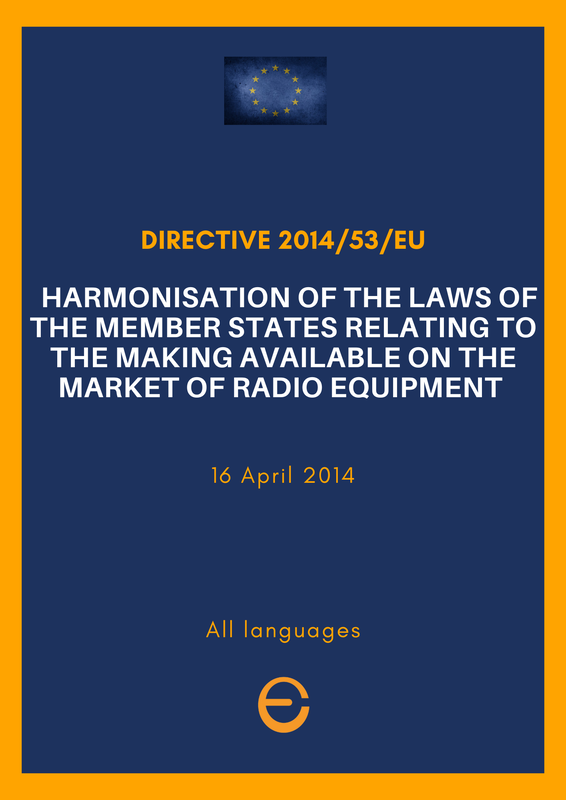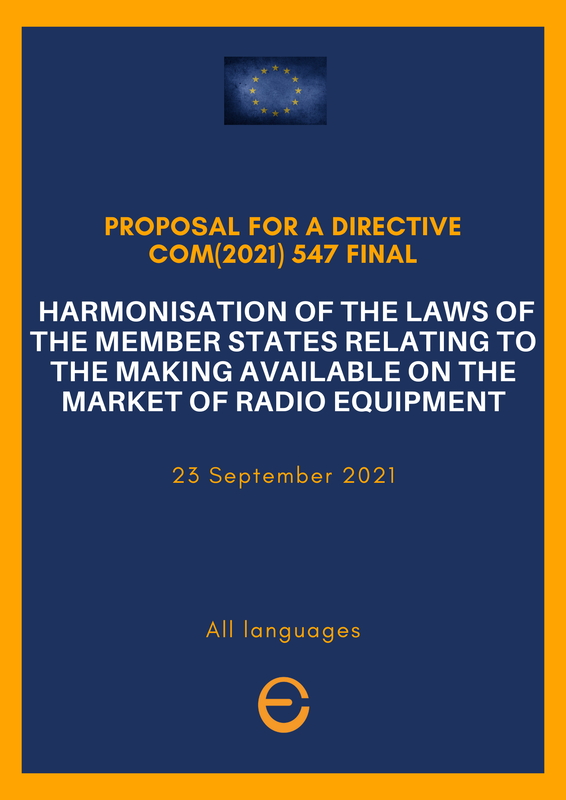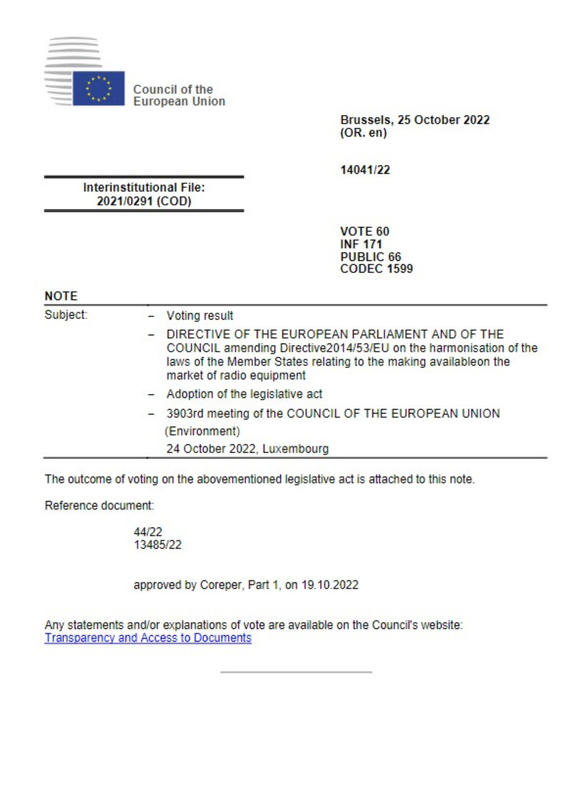Mechanical Engineering
Rail supply industry
This is a regulatory framework for placing radio equipment on the market. It ensures a single market for radio equipment by setting essential requirements for safety and health, electromagnetic compatibility, and the efficient use of the radio spectrum. It also provides the basis for further regulation governing some additional aspects. These include technical features for the protection of privacy, personal data and against fraud. Furthermore, additional aspects cover interoperability, access to emergency services, and compliance regarding the combination of radio equipment and software.
The Directive
|
The Directive sets out rules for putting radio equipment on the European Union (EU) internal market.
The rules set out by the Directive aim to keep pace with the growing number and variety of radio equipment devices, to ensure that they do not interfere with each other and respect essential health and safety requirements. The directive also sets out additional means for market surveillance to track and monitor products which fail to comply with the essential requirements (e.g. health and safety). It repealed Directive 1999/5/EC with effect from 12 June 2016. Scope of the Directive
|
- It does not cover radio equipment used for public security and defence activities or radio equipment used by radio amateurs.
- Amending Regulation (EU) 2018/1139 on civil aviation rules (see summary) also excludes from the scope of Directive 2014/53/EU the following aviation equipment intended exclusively for airborne use:
- aircraft, other than unmanned aircraft, as well as associated engines, propellers, parts and non-installed equipment;
- unmanned aircraft, as well as associated engines, propellers, parts and non-installed equipment, the design of which is certified in accordance with that regulation and which are intended to operate only on frequencies allocated by the radio regulations of the International Telecommunications Union for protected aeronautical use.
Obligations of manufacturers, importers and distributors
The directive contains lists of obligations of manufacturers (Article 10), importers (Article 12) and distributors (Article 13).
For example, before manufacturers put their radio equipment on the market for sale, they need to ensure that it has been designed and manufactured in such a way that it meets a number of essential requirements. One of these is to ensure the protection of the health and safety of people and of domestic animals.Other requirements are set out in Article 3 and relate to the protection of personal data and privacy, protection against fraud and access to emergency services.
For example, before manufacturers put their radio equipment on the market for sale, they need to ensure that it has been designed and manufactured in such a way that it meets a number of essential requirements. One of these is to ensure the protection of the health and safety of people and of domestic animals.Other requirements are set out in Article 3 and relate to the protection of personal data and privacy, protection against fraud and access to emergency services.
Battery chargers: from 2024 "USB-C" charging port is the new EU standard
|
On 23 September 2021, the European Commission put forward a proposal for a directive to revise Directive (EU) 2014/53/EU. The proposal includes, in particular, rules which:
On 4 October 2022, the European Parliament approved the agreement reached with the Council. On 25 october 2022, the COREPER approved the agreement reached with the Parliament. Once formally approved by the Council and published, the requirements will become applicable after 24 months. As a result, as from 2024 all new handheld mobile phones, tablets, digital cameras, handheld videogame consoles, headphones, headsets, portable speakers, e-readers, keyboards, mice, portable navigation systems and earbuds will have to be equipped with the harmonised charging solution (namely, with a USB-C charging port). In the case of laptops, the requirements would become applicable as from 2026. Delegated act
The Commission has adopted two delegated acts:
|
- Delegated Regulation (EU) 2022/30 supplements Directive 2014/53/EU with regard to the application of the essential requirements. It requires manufacturers to integrate privacy and personal data, network security and fraud prevention considerations into the design of radio equipment.




